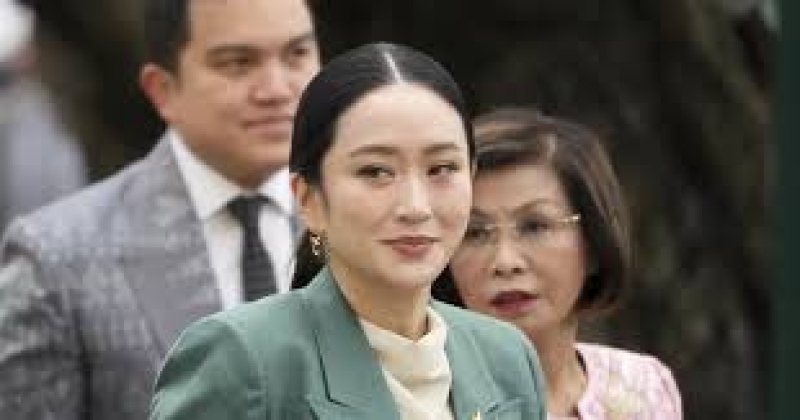- Puppet show enchants Children as Boi Mela comes alive on day 2 |
- DSCC Admin Salam’s drive to make South Dhaka a ‘clean city’ |
- 274 Taliban Dead, 55 Pakistan Troops Killed |
- Now 'open war' with Afghanistan after latest strikes |
- Dhaka's air quality fourth worst in world on Friday morning |
Thai PM suspended over leaked phone call controversy

Thailand's Constitutional Court on Tuesday suspended Prime Minister Paetongtarn Shinawatra from office, pending an investigation into allegations that she breached ethical standards during a leaked phone conversation with a senior Cambodian leader regarding a border dispute.
Paetongtarn, who has faced mounting criticism over her handling of the dispute that escalated into an armed clash on May 28, allegedly appeared overly submissive to Cambodian Senate President Hun Sen during the call. The confrontation resulted in the death of a Cambodian soldier.
The leaked audio, intended to ease tensions, instead provoked widespread backlash, sparking public protests and accusations that Paetongtarn compromised national interests.
The court voted unanimously to examine the complaint and, by a 7-2 margin, decided to suspend Paetongtarn with immediate effect while the investigation is underway. She has been granted 15 days to present her defense.
Following the court's decision, Paetongtarn defended her actions, stating, "I only thought of ways to avoid conflict and prevent casualties among soldiers." She also expressed regret to those upset over the leaked conversation and left Government House shortly after.
Deputy Prime Minister and Transport Minister Suriya Jungrungruangkit has been appointed as acting prime minister, said Chousak Sirinil, minister in the prime minister's office.
The suspension comes amid political unrest and growing dissatisfaction with Paetongtarn and her Pheu Thai party. Critics have labeled her government’s performance as disappointing, while Thailand faces economic challenges.
The leaked phone call added fuel to the controversy. In it, Paetongtarn urged Hun Sen — a close ally of her father, former Prime Minister Thaksin Shinawatra — to disregard criticism from a Thai regional army commander, referring to him as "an opponent." The remarks angered nationalists and conservatives, triggering protests in Bangkok demanding her resignation.
Paetongtarn also faces a separate investigation by another state agency over the leaked call, which could lead to her removal.
Her suspension has drawn parallels to previous political turmoil in Thailand, where courts and unelected institutions have frequently intervened against elected leaders. Both her father Thaksin, ousted in a 2006 coup, and her aunt Yingluck Shinawatra, removed by court order in 2014, experienced similar fates.
“This recurring cycle of political instability will continue unless Thailand enacts genuine democratic reforms to curb the power of unelected institutions,” said Purawich Watanasukh, a political science lecturer at Thammasat University.
Meanwhile, Thaksin, a polarizing figure in Thai politics, appeared in court Tuesday over a 2015 defamation case involving the monarchy. He also faces scrutiny over his controversial return to Thailand in 2023, when he was granted clemency on corruption charges after avoiding prison.
The Shinawatra family's influence, once firmly rooted among Thailand's rural and working-class supporters, has shown signs of weakening. Many of Thaksin’s former supporters were disillusioned after his behind-the-scenes deal with conservatives, which sidelined the reformist Move Forward Party despite its election victory.
Thailand's courts, especially the Constitutional Court, are widely viewed as protectors of the royalist establishment, often accused of using legal mechanisms to undermine political rivals, reports UNB.

